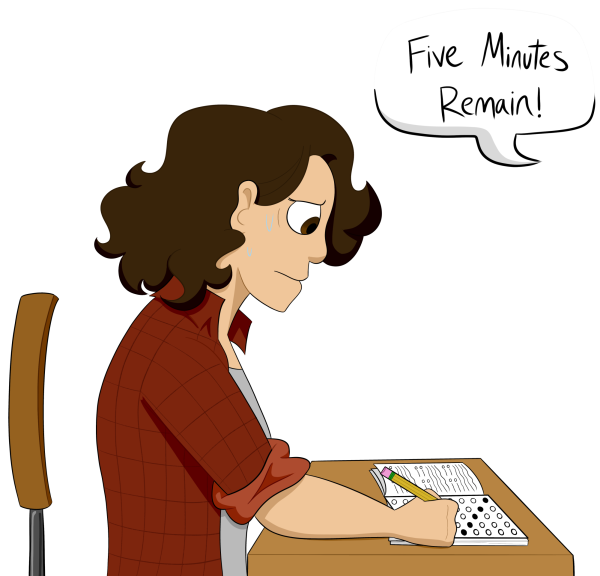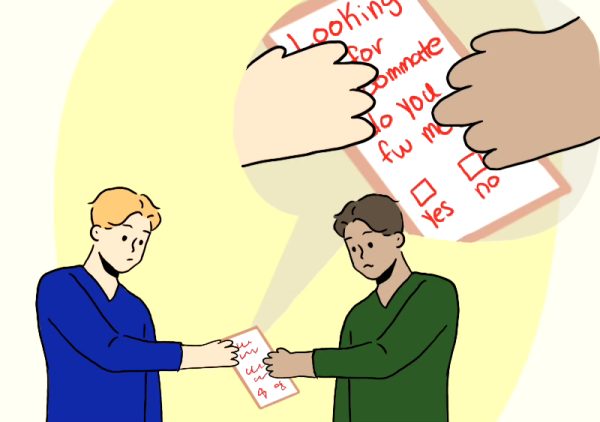Rejection is not just “redirection”
Rejected Student rotoscoped over a photo taken by Max Froehlich.
Each year, from mid-December through the first week of April, millions of high school seniors sit anxiously waiting to hear back from the colleges they have applied to. Rejection is extremely common, and the experience is usually followed by a teacher, fellow student, or parent saying “rejection is just redirection.” Though the phrase is meant to encourage students by reminding them that rejection does not signify the end of the college process, the underlying meaning of this inspirational quote is more harmful than beneficial.
The five stages of grief are denial, anger, bargaining, depression, and acceptance. Trying to place rejection as mere redirection falls into the denial and bargaining category. With approximately 20 million US students applying to college, more than five million face rejection from their top schools, according to Time Magazine and Keystone Bachelor Studies. Many students have had school paraphernalia hanging on their walls since elementary school, and when they face academic rejection, it can feel like the end of the world. Some attempt to cope with these defeats by claiming it was fate as a way of bargaining through grief. However, avoiding the entailments of rejection and regarding it as a divine form of redirection doesn’t allow for growth.
Being young and impressionable can make events such as being rejected from a school—facing any form of rejection in general—seem insurmountable. However, you are never alone in these inadequacies. Rejection is unavoidable in the real world, and the sooner you learn to overcome it, the sooner you achieve true “redirection.” The Early Childhood Learning and Knowledge Center defines redirection as “a proactive method for dealing with challenging behavior.” This definition highlights that in order to achieve “redirection,” you must take action and work towards this goal to productively overcome rejection.
Rejection comes from all sorts of places, whether it’s a job, a school, or an activity. To avoid the pain of dealing with rejection, we often like to blame fate and not hold ourselves accountable for our failures, no matter how big or small. Sometimes endeavors result in rejection, but this isn’t due to an ethereal power guiding you along a path. Everyone creates their own path in life; there may be turns, challenges, and maybe even a dead end along the way. But it’s crucial to welcome these changes and decide where to go from that point on. Don’t let rejection decide your future by just sliding over to the next available option, and instead, take actions to redirect yourself.

Caitlin Bambery (she/her) is a junior at EHS and is the opinion section editor. She is a true crime junkie and fuels this addiction at night. She is also...

Iris Libson is an artist entering their third year on staff. When they aren't going on spiels about odd facts like 18th and 19th Century Resurrectionists...









